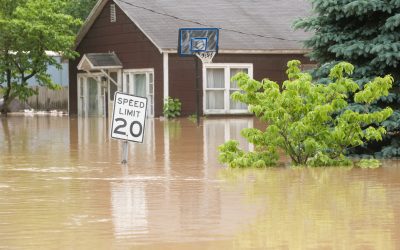Post-Loss Actions That Can Affect Your Insurance Claims Dispute
Filing an insurance claim is rarely a stress-free experience, especially when disaster strikes your home or business. Whether it’s a hurricane, fire, flood, or another property-damaging event, how you respond immediately after the loss can significantly influence the outcome of your claim. In fact, your post-loss actions could be the deciding factor in whether your insurance claims dispute is resolved fairly or denied entirely.
In this blog, we’ll explore the critical post-loss actions that can affect your insurance claims dispute and provide practical tips to help policyholders protect their rights and maximize their claim outcomes.
Understanding the Impact of Post-Loss Actions on Your Insurance Claims Dispute
When you file a claim, your insurance company assigns an adjuster to evaluate the damage and determine what compensation, if any, you’re entitled to under your policy. However, your behavior and decisions in the immediate aftermath of a loss can affect how your claim is processed—or disputed.
An insurance claims dispute typically arises when there’s a disagreement between you and your insurer regarding the value of damages, coverage interpretation, or even claim denial. Actions like failing to document damages, making repairs without authorization, or not communicating properly with your insurer can be used as leverage against you during the claims process.
1. Delayed Notification to the Insurer
One of the most common mistakes that leads to an insurance claims dispute is failing to notify your insurance company promptly after a loss. Most policies include a requirement to report any damage within a “reasonable” timeframe. Waiting too long may give the insurer grounds to reduce or deny your claim, arguing that delays have worsened the damage or impaired their ability to inspect it properly.
Tip: Report the incident as soon as it’s safe to do so. Document the call or email, and request written acknowledgment that your claim has been filed.
2. Inadequate Documentation of Damages
Insurance companies rely heavily on evidence when processing claims. If you don’t document the damage thoroughly, your insurance adjuster may downplay the extent of the loss, which can spark an insurance claims dispute.
What You Should Document:
- Photos and videos of the damage from multiple angles
- Written descriptions of the incident
- Inventory of damaged or lost items, including receipts if available
- Any correspondence with contractors or adjusters
Tip: Even if a loss seems small, always document it carefully. The smallest details can make a big difference in how your claim is evaluated.
3. Making Unauthorized Repairs
Understandably, you want to protect your property and prevent further damage. However, making permanent repairs before the insurance adjuster inspects the damage can be a costly mistake. Your insurer may argue that it couldn’t assess the full scope of the loss, leading to a dispute over your claim.
What’s Acceptable:
- Temporary measures to prevent further damage, like tarping a roof or shutting off water
- Securing the premises from additional loss or theft
What to Avoid:
- Full-scale repairs or renovations before getting written approval
- Replacing structural components or fixtures before your claim is assessed
Tip: Always consult your insurance company or a public adjuster before making significant repairs.
4. Failure to Mitigate Further Loss
On the flip side, failing to take action to prevent additional damage can also backfire. If you allow mold to spread or water damage to worsen because you didn’t act, the insurer may refuse to cover the added losses, claiming negligence on your part.
This often leads to a disputed claim, particularly in cases involving water and storm damage.
Tip: Take immediate but safe action to limit further property loss. Keep receipts of any emergency repairs or services you hire to prevent further damage.
5. Poor Communication with Your Insurance Provider
A breakdown in communication is a surefire way to complicate your claim. Missed emails, unreturned phone calls, or failing to provide requested documents can raise red flags for your insurance company and may result in delays, denials, or disputes.
How to Maintain Strong Communication:
- Respond promptly to any requests
- Keep a communication log, including names, dates, and summaries of conversations
- Follow up emails with written confirmations
- Store all records in one secure place
Tip: Treat all communications with your insurer as though they might become part of a legal dispute later. Keep everything organized and professional.
6. Misrepresenting Facts or Omitting Information
Being dishonest or omitting important details when reporting a loss can severely harm your case. Any form of misrepresentation—even if unintentional—can result in an insurance claims dispute or even fraud allegations.
Insurance companies conduct their own investigations and cross-reference your information with public records, weather reports, and contractor estimates. Discrepancies can lead to challenges in your claim.
Tip: Be truthful and transparent. If you’re unsure about how to describe the event or damage, consult a public adjuster for guidance.
7. Not Hiring a Public Adjuster or Expert Support
Many homeowners are unaware of their right to hire a licensed public adjuster. Unlike the insurance company’s adjuster, a public adjuster works for you, representing your interests and ensuring that all damages are properly assessed and claimed.
In many cases, policyholders who work with a public adjuster are less likely to end up in an insurance claims dispute, as their claims are better prepared, more detailed, and backed by a professional advocate.
Benefits of Hiring a Public Adjuster:
- Accurate valuation of damages
- Professional negotiation with the insurer
- Proper documentation and claim handling
- Reduced stress and workload on the policyholder
8. Ignoring the Policy Terms and Conditions
Your insurance policy is a legally binding contract. Many disputes arise simply because policyholders don’t understand what is and isn’t covered. Not reading or understanding your policy can lead to unrealistic expectations, denied claims, or prolonged arguments with your insurer.
Key Things to Know in Your Policy:
- Coverage limits
- Exclusions
- Time limits for filing a claim
- Obligations after a loss
Tip: Review your policy annually and especially after any major storm or event. If needed, seek help from a public adjuster or insurance attorney to interpret it correctly.
How to Avoid an Insurance Claims Dispute Altogether
While not every dispute is preventable, many can be avoided by following these best practices:
- Act quickly to report the damage and prevent further loss
- Document everything thoroughly, including conversations and costs
- Avoid permanent repairs until you get approval
- Be honest and transparent in your reporting
- Work with professionals like public adjusters to strengthen your claim
- Understand your policy and your obligations as a policyholder
Conclusion: Protect Yourself from an Insurance Claims Dispute
Your actions after experiencing property damage can have a direct impact on your insurance claim’s outcome. Taking the right steps—and avoiding critical mistakes—can help ensure a smoother claims process, reduce the risk of a claims dispute, and improve your chances of receiving a fair settlement.
If you’re facing property damage in Florida and want to avoid a frustrating insurance claims dispute, our team at Care Public Adjuster is here to help. We advocate for policyholders and make sure insurance companies pay what you deserve.
📞 Call us today for a free consultation (844) 932-2731
Don’t navigate the complex world of insurance claims alone. Let us fight for your rights and get your life back on track—the right way.



